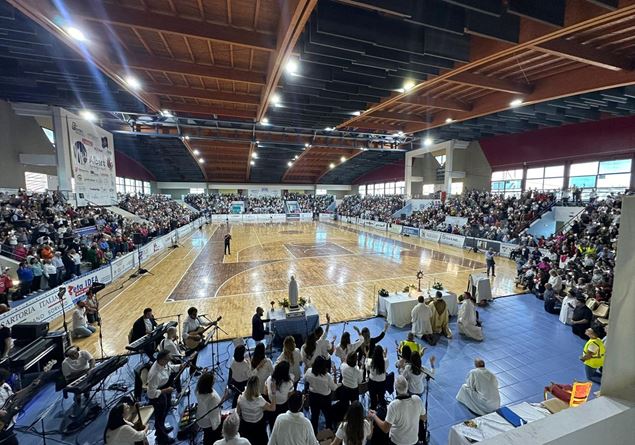
On November 5, the Senate adopted the so-called “anti-Airbnb” bill aimed at encouraging property owners to rent their accommodation for long periods, rather than furnished tourist accommodation.
© Aleksei/Adobe Stock
– The so-called “anti-Airbnb” bill will be submitted to the National Assembly for a final vote on November 7.
-
To safeguard
Saved
Receive alerts Furnished rental
The “anti-Airbnb” bill (PPL), whose landlords have been hearing about for almost two years, is entering its very final stretch. After having adopted it at first reading, in January and May 2024 respectively, deputies and senators agreed on October 28 on the final version of this text and the Senate definitively adopted it this Tuesday, November 5. The final vote by the National Assembly is expected on Thursday, November 7. Supported by deputies Annaïg Le Meur (Together for the Republic) and Inaki Echaniz (Socialists), this PPL aims to reduce the advantages that the rental of furnished tourist accommodation benefits from compared to bare rental. The ultimate objective being to encourage owners to rent their properties for long periods in order to facilitate housing for locals and workers, particularly in tense areas, where demand far exceeds the supply of housing.
The PPL resulting from the CMP thus lowers, from 50% to 30%the tax reduction on rental income from which furnished tourist accommodation benefits. This 30% threshold, which will apply to rental income earned from 2025, owes nothing to chance: it is the tax reduction granted to bare rentals, characterized by three-year leases. The rental income ceiling beyond which you are not entitled to this reduction is also reduced, from 77,700 euros to 15,000 euros.
Airbnb rentals: MPs cut their tax allowance and subject them to VAT
The taxation of “Airbnb” still not aligned with that of bare rental
Classified furnished tourist accommodation, that is to say meeting specific comfort criteria, sees their tax reduction reduced from 71% to 50% drental income. Which should not exceed 77,000 euros to entitle you to the reduction, compared to a ceiling of 188,700 euros previously. “The Senate version won (over that of the National Assembly)”had emphasized to Capital Senator Dominique Estrosi-Sassone, October 28. When the National Assembly adopted the PPL at first reading, on January 29, 2024, it had in fact voted for a 30% reduction for both classified and unclassified furnished accommodation.
Judging again “too generous» the 50% reduction rate for classified furnished accommodation, Annaïg Le Meur and Iñaki Echaniz “will continue to defend, as part of the examination of the draft budget for 2025, the need to align taxation between long-term and short-term rentals”. On October 26, moreover, the National Assembly adopted two amendments to the finance bill for 2025, carried by Annaïg Le Meur and Inaki Echaniz, which lower the tax reduction to 30% for all furnished, classified or No. Three days earlier, the Assembly had adopted another amendment, this time increasing the tax reduction for bare rental from 30% to 50%. But there is no guarantee that these amendments will appear in the final text of the 2025 budget, if the government does without the vote of Parliament by resorting to article 49.3 of the Constitution.
Faced with new regulations, will Airbnb change its tune?
Accommodations already rented on Airbnb have 10 years to present a DPE D
Beyond the reduction of their tax allowance, the PPL subjects owners of furnished tourist accommodation toban on rental of thermal strainers currently in force for bare rental. If you decide to rent a home (which is not your main residence) on Airbnb after the promulgation of the Le Meur-Echaniz law, its energy performance diagnosis must be rated at least E. In 2034, it must be rated at least D, since the E thermal strainers can no longer be rented from this date. A ban which will concern goods labeled G from January 1, 2025, then F in 2028.
An important clarification: if you already rent accommodation on Airbnb and it is an F and G thermal strainer, you have ten years to increase its DPE to at least D. “The right and the extreme right have achieved that the stock (as opposed to new rentals) of furnished tourist accommodation benefits from ten years to comply with energy performance obligations»sighed next to Capital LFI MP Danielle Simonnet, October 28. While greeting “the concrete progress of this text to combat the proliferation of furnished tourist accommodation”. The PPL also provides that all municipalities can set up quotas for furnished tourist accommodation, designate areas reserved for the construction of main residences or even lower the maximum number of days of tourist rental of main residences, from 120 to 90 days. For its part, Airbnb “regrets the addition of measures targeting occasional rental which will have no effect on the imbalances in the rental market.
Receive our latest news
Every week your appointment with real estate news.






